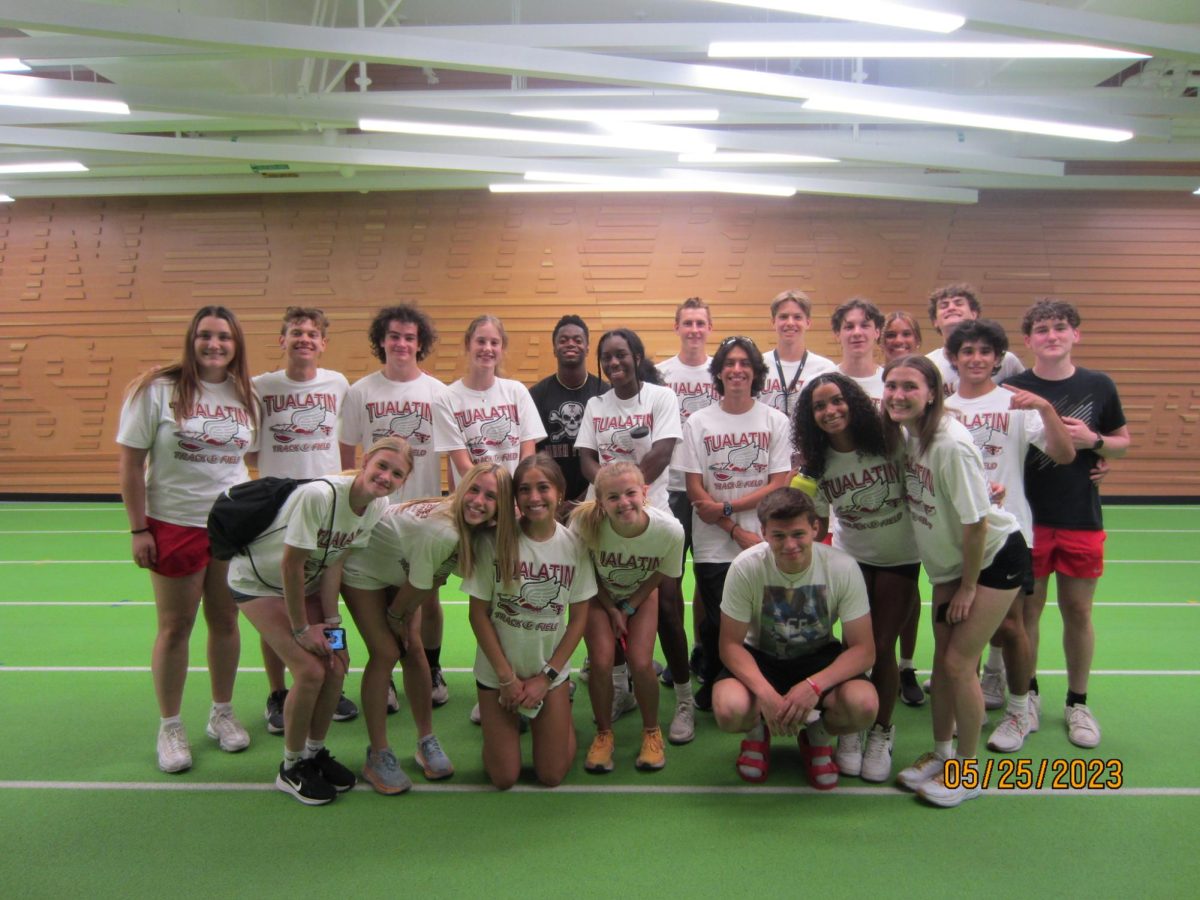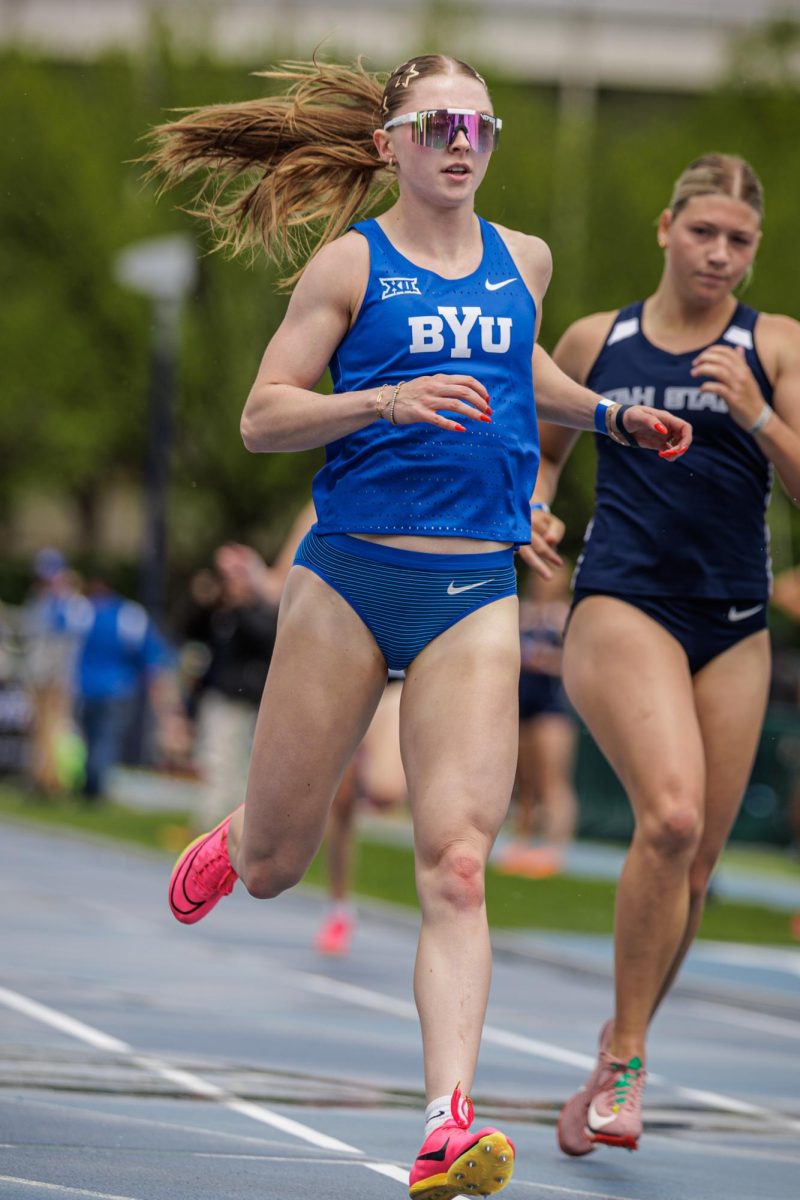As fall transitions to winter, off-season training for track has begun. Many athletes train with a local club or participate in TuHS’s WinterWolves program to get a head start on their season. Different exercises are done to target different parts of the body when preparing for their season.
The Wolf interviewed seniors Elizabeth Graham, who competes in long jump, triple jump and short sprints; Tyler Craft who competes in long jump, triple jump, high jump and 400m/4×4 relay; Kyra Bakke, who competes in the high jump, and Carson Page, who competes in the 400m, 800m and 1500m, to find out what their off-season routines are.
How do you train for track during the off season? What is targeted?
Graham: I train with my club team called the Inner Circle Track Club. Different seasons target different things, so fall is mainly strength endurance and a lot of conditioning, lengthier workouts. Winter is maintaining that athleticism and competing indoors, and then spring is outdoor competition season, so much less conditioning and more event work. We do summer, too, which is kind of just a continuation of spring.
Craft: The fall season consists of weightlifting, endurance training and conditioning. The winter season is a mix of conditioning, weightlifting and specific event work, along with a few meets. Both fall and winter are four days a week from 6:30-8 p.m.
Bakke: The main target is strength and conditioning. We don’t work on event-specific exercises but rather getting stronger. We weight lift four days a week and we condition (hills, 150’s, 400’s, etc.) four days a week.
Page: I train by doing exercises such as back squats to target quads, split squats to target hamstrings and deadlifts to hit the whole lower body. I also finish strength days with a core routine. I also try to work in some speed and endurance training closer to the start of the season.
TuHS Timberwolves are ready to tackle this season with their head start on training! Athletes are excited as they anticipate the upcoming track season!
Why is off-season training important?
Graham: It’s important that you stay fit, and then during the spring season you can focus on working on your event and perfecting technique without having to spend much time on getting fit. It just takes a lot of time, so it works best to come in already fit.
Craft: Off-season training is important to many athletes because it prepares you for the upcoming season. I think that the off season is one of my favorite seasons because there is so much improvement to be made.
Bakke: Without off-season training, it’s majorly difficult to get back into track in spring. I wouldn’t have any strength or stamina. Off season is beneficial for being less injury prone and for staying strong. If I were to take winter and fall off, I would be starting over every year instead of continuously building on my strength.
Page: Off-season training helps build the basis for your season. Whether you are an endurance athlete, a sprinter, a jumper or a thrower, building the strength and endurance to compete is vital because it’s hard to build that mid season.



